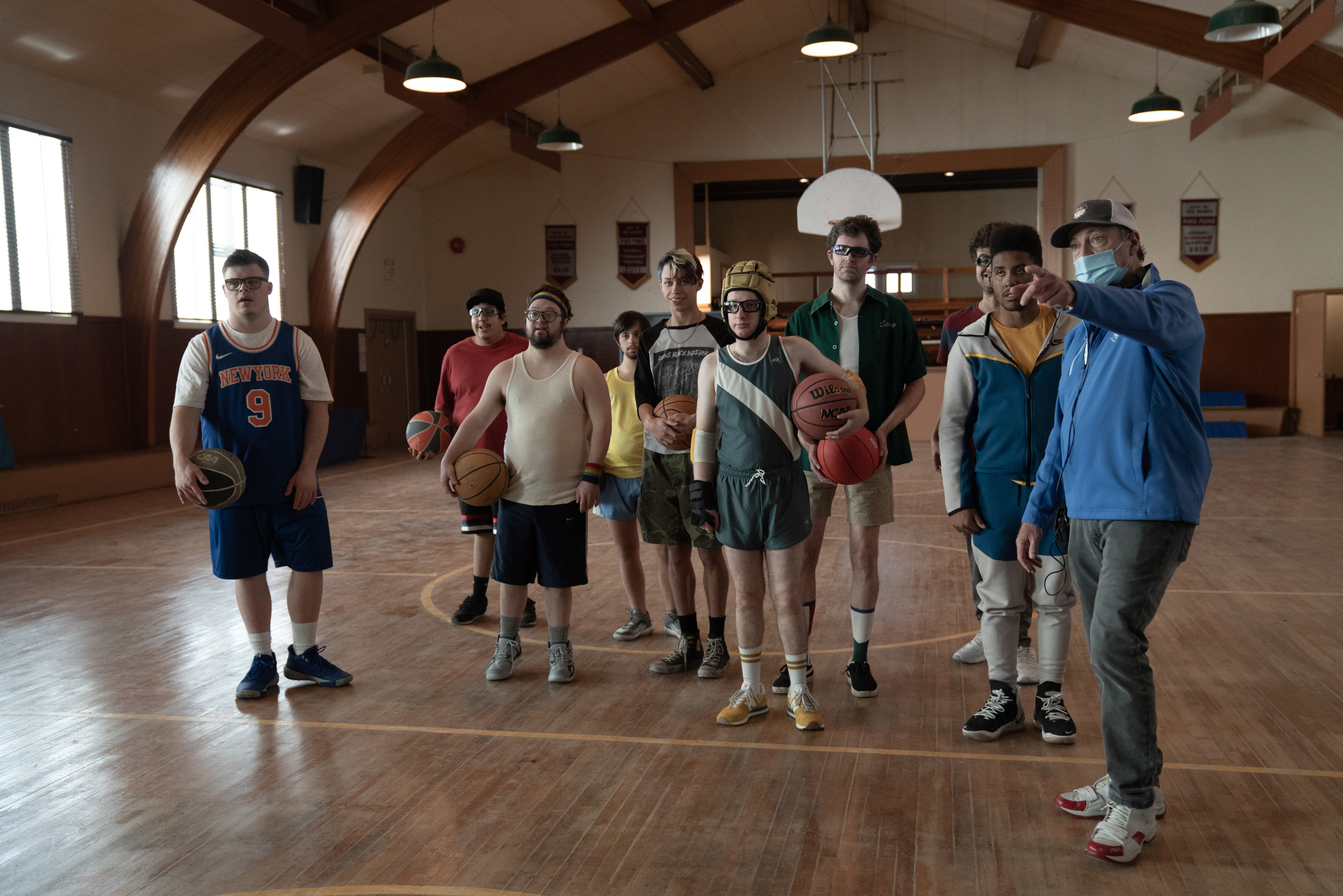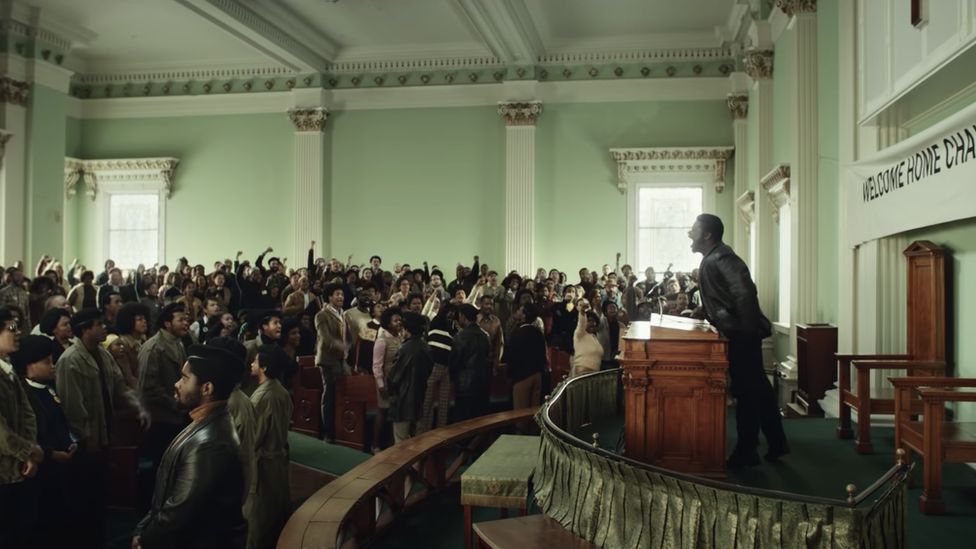The Academy of Motion Picture Arts and Sciences has announced new diversity requirements for films that want to be eligible for Oscar awards.
Oscar hopefuls will have to meet a new set of inclusive hiring standards in order to qualify for Best Picture, an effort the Academy of Motion Picture Arts and Sciences hopes will lead to greater diversity and representation both onscreen and behind the scenes.
It’s part of the Academy Awards’ ongoing response to criticism over its lingering lack of diverse nominees. The outcry became particularly intense five years ago when the hashtag #OscarsSoWhite forced a reckoning within the organization. Since that time, leadership of the Academy has tried to improve diversity within its voting body and encourage positive discussions within the industry, but this new set of guidelines is aimed at making it mandatory for contenders to be more inclusive of those who have traditionally been marginalized in Hollywood.
The policies will only become mandatory for the 96th Academy Awards in 2024, which will give would-be contenders three years to make sure they meet at least two of the four categories below that are designated A, B, C, and D.
STANDARD A: ON-SCREEN REPRESENTATION, THEMES AND NARRATIVES
To achieve Standard A, the film must meet one of the following criteria:
A1. Lead or significant supporting actors — At least one of the lead actors or significant supporting actors is from an underrepresented racial or ethnic group.
• Asian
• Hispanic/Latinx
• Black/African American
• Indigenous/Native American/Alaskan Native
• Middle Eastern/North African
• Native Hawaiian or other Pacific Islander
• Other underrepresented race or ethnicity
A2. General ensemble cast — At least 30% of all actors in secondary and more minor roles are from at least two of the following underrepresented groups:
• Women
• Racial or ethnic group
• LGBTQ+
• People with cognitive or physical disabilities, or who are deaf or hard of hearing
A3. Main storyline/subject matter — The main storyline(s), theme or narrative of the film is centered on an underrepresented group(s).
• Women
• Racial or ethnic group
• LGBTQ+
• People with cognitive or physical disabilities, or who are deaf or hard of hearing
STANDARD B: CREATIVE LEADERSHIP AND PROJECT TEAM
To achieve Standard B, the film must meet one of the criteria below:
B1. Creative leadership and department heads — At least two of the following creative leadership positions and department heads—Casting Director, Cinematographer, Composer, Costume Designer, Director, Editor, Hairstylist, Makeup Artist, Producer, Production Designer, Set Decorator, Sound, VFX Supervisor, Writer—are from the following underrepresented groups:
• Women
• Racial or ethnic group
• LGBTQ+
• People with cognitive or physical disabilities, or who are deaf or hard of hearing
WATCH
Archaeologist Reviews Archaeology in Movies, from ‘Indiana Jones’ to ‘Lara Croft: Tomb Raider’
More Vanity Fair Videos
MOST POPULAR
Image may contain: Human, Person, Suit, Coat, Clothing, Overcoat, Apparel, Face, and Meghan Markle
Prince Harry and Meghan Markle Are “Relieved and Pleased” to Pay Off the Frogmore Cottage Renovations
BY KATIE NICHOLL
Image may contain: Water, Outdoors, Nature, Sport, Sports, Human, Swimming, Person, and Underwater
On Witness and Respair: A Personal Tragedy Followed by Pandemic
BY JESMYN WARD
The Trump Campaign Is Spending Money Like a Guy Who Bankrupted a Casino (And Five Other Businesses)
BY BESS LEVIN
At least one of those positions must belong to the following underrepresented racial or ethnic group:
• Asian
• Hispanic/Latinx
• Black/African American
• Indigenous/Native American/Alaskan Native
• Middle Eastern/North African
• Native Hawaiian or other Pacific Islander
• Other underrepresented race or ethnicity
B2. Other key roles — At least six other crew/team and technical positions (excluding Production Assistants) are from an underrepresented racial or ethnic group. These positions include but are not limited to First AD, Gaffer, Script Supervisor, etc.
B3. Overall crew composition — At least 30% of the film’s crew is from the following underrepresented groups:
• Women
• Racial or ethnic group
• LGBTQ+
• People with cognitive or physical disabilities, or who are deaf or hard of hearing
STANDARD C: INDUSTRY ACCESS AND OPPORTUNITIES
To achieve Standard C, the film must meet both criteria below:
C1. Paid apprenticeship and internship opportunities — The film’s distribution or financing company has paid apprenticeships or internships that are from the following underrepresented groups and satisfy the criteria below:
• Women
• Racial or ethnic group
• LGBTQ+
• People with cognitive or physical disabilities, or who are deaf or hard of hearing
The major studios/distributors are required to have substantive, ongoing paid apprenticeships/internships inclusive of underrepresented groups (must also include racial or ethnic groups) in most of the following departments: production/development, physical production, post-production, music, VFX, acquisitions, business affairs, distribution, marketing and publicity.
The mini-major or independent studios/distributors must have a minimum of two apprentices/interns from the above underrepresented groups (at least one from an underrepresented racial or ethnic group) in at least one of the following departments: production/development, physical production, post-production, music, VFX, acquisitions, business affairs, distribution, marketing and publicity.
C2. Training opportunities and skills development (crew) — The film’s production, distribution and/or financing company offers training and/or work opportunities for below-the-line skill development to people from the following underrepresented groups:
• Women
• Racial or ethnic group
• LGBTQ+
• People with cognitive or physical disabilities, or who are deaf or hard of hearing
STANDARD D: AUDIENCE DEVELOPMENT
To achieve Standard D, the film must meet the criterion below:
D1. Representation in marketing, publicity, and distribution
The studio and/or film company has multiple in-house senior executives from among the following underrepresented groups (must include individuals from underrepresented racial or ethnic groups) on their marketing, publicity, and/or distribution teams.






